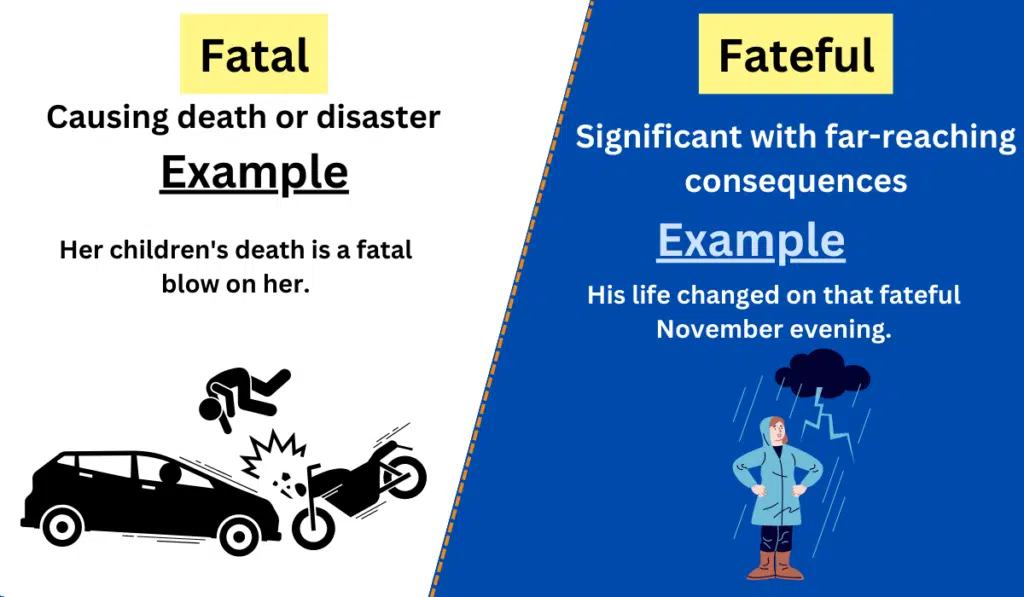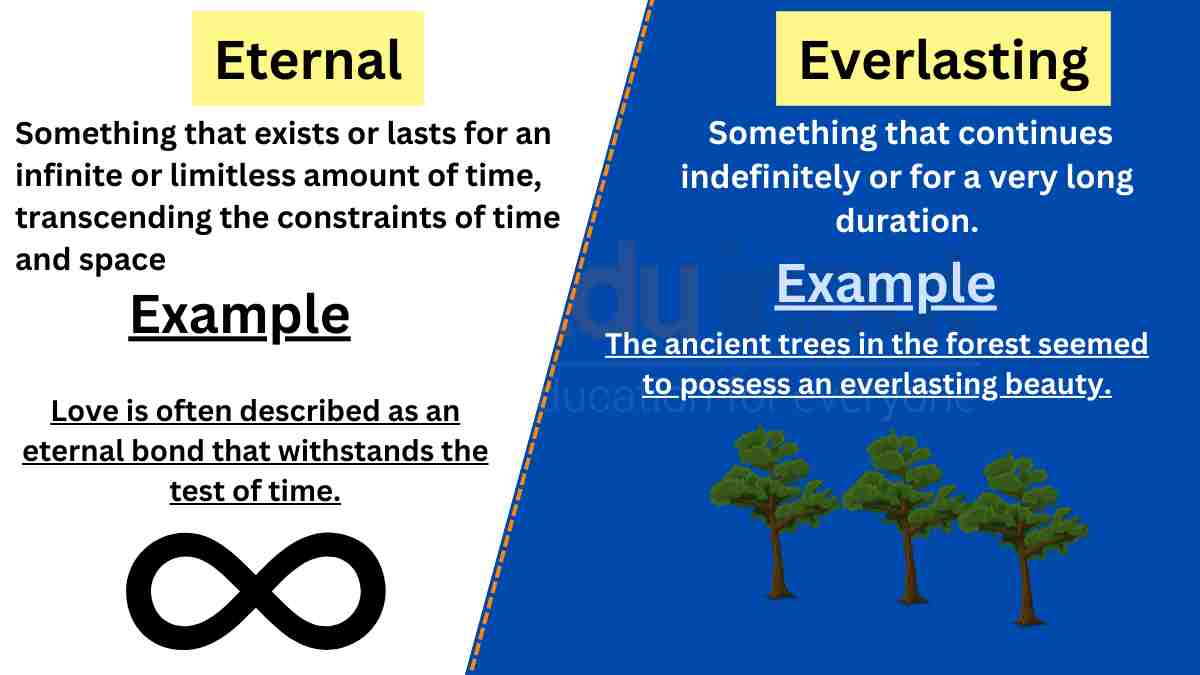Fatal vs. Fateful-Difference between and example
The words “fatal” and “fateful” share a similar sound, which often leads to confusion regarding their meanings.

However, these words carry distinct connotations and implications that deserve clarification.
This article aims to elucidate the differences between “fatal” and “fateful,” offering a deeper understanding of their definitions and usage.
By grasping these nuances, we can communicate more precisely and avoid potential misunderstandings.
Meanings and Examples
Fatal Definition
The definition of fatal is;
Definition: “Fatal” refers to something causing death, disaster, or irreversible consequences.
Examples of Fatal
- The car accident resulted in a fatal outcome.
- The doctor delivered the news of the patient’s fatal illness.
- The storm’s destructive force had fatal consequences for the coastal town.
Fateful Define
The definition of fateful is;
Definition: “Fateful” signifies an event or decision that has significant or far-reaching consequences, often with a sense of destiny or inevitability.
Examples of Fateful
- Their fateful encounter at a coffee shop changed the course of their lives.
- The fateful decision to start a business led to their remarkable success.
- The fateful moment when they locked eyes was the beginning of their love story.
Difference between Fatal and Fateful
| Category | Fatal | Fateful |
| Meaning | Causing death or disaster | Significant with far-reaching consequences |
| Example | “The car accident resulted in a fatal…” | “Their fateful encounter at a coffee shop…” |
| Usage | Irreversible consequences | Momentous, destiny-like implications |
| Context | Death, tragedy, irreversible outcomes | Significant events, life-changing decisions |
Usage in a Paragraph
In life, we often encounter fateful moments that have the potential to alter our destinies. Sometimes, these fateful encounters can lead to remarkable opportunities or unforeseen challenges.
However, it is crucial to distinguish between a fateful event and a fatal one. A fatal accident carries the weight of irreversible consequences, leading to loss and tragedy.
On the other hand, a fateful decision or encounter holds the promise of significant outcomes, shaping our lives in profound ways.
Recognizing the difference allows us to navigate life’s twists and turns with greater clarity and understanding.
It reminds us to appreciate the gravity of fatal situations while embracing the transformative power of fateful moments.
Although “fatal” and “fateful” share similar sounds, their meanings diverge significantly. “Fatal” refers to something causing death or disaster, emphasizing irreversible consequences.
“Fateful,” on the other hand, suggests an event or decision with profound implications and a sense of destiny. Understanding these distinctions enables us to communicate effectively, conveying the gravity of fatal circumstances and recognizing the significance of fateful moments.
By appreciating the differences between these words, we can navigate life’s unpredictable journey with a deeper sense of awareness and insight.







Leave a Reply